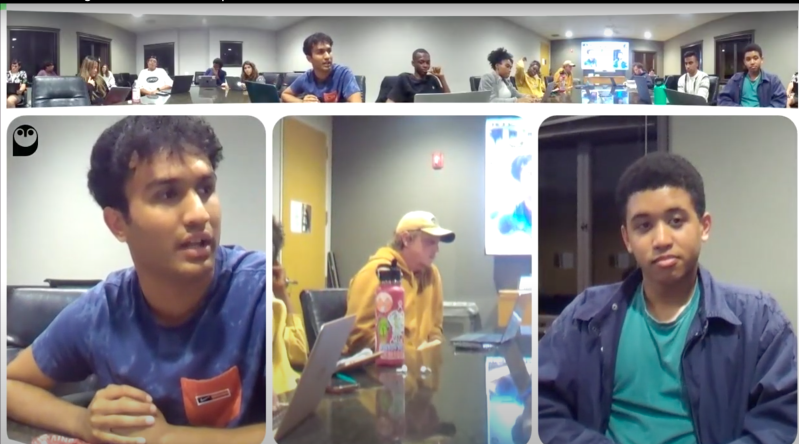The Undergraduate Senate (UGS) passed a bill that calls for the end of legacy and philanthropy admissions at its Tuesday meeting.
The bill, authored by UGS co-chair Diego Kagurabadza ’25, expresses support for California Assembly Bill No. 1780, which would prohibit preferences for legacy and donor applicants. Although not yet law, the legislature’s bill has broad support, according to senator Gordon Allen ’26.
“Our voice as a Stanford campus is particularly significant in this conversation,” Kagurabadza said. Though the state bill is likely to pass, he said it was important for the University to be proactive, rather than wait for the California legislature.
Sophie Callcott ’24, one of about a dozen community members present at the meeting, said she supported the UGS bill despite being a legacy student. “My counselor said that my legacy status increased my admissions chances from 3% to 15%,” she said.
“It perpetuates generation after generation of privilege to the wealthy,” Callcott said. “Why are we keeping this fundamentally prejudiced system and ingraining it? It’s all so corrupted on so many levels because wealth comes in.”
Stanford is one of only seven Californian colleges that uses legacy and donor preferences. Dawn Royster ’26 said that continuing to consider legacy status in admissions could predominantly benefit white and wealthy applicants.
“The people we know to be legacy students are predominantly white,” Royster said. “We need to make sure we are equitable when admitting students.”
Though the bill passed, it was opposed by one senators, with three abstentions. Some expressed concern that the abolition of legacy admissions would reduce donations to the University.
Senator Ari Arias ’25 questioned the need for the UGS resolution, given that the state bill is likely to pass, and said he wanted the UGS to consider donor relations.
“A decrease in donation is a pretty big risk to take,” Arias said. “These people are trying to help. We should take a step back. We could upset donors from donating to Stanford, donors who are actually helping fund initiatives and helping students.”
Senator Khandaker Aqib ’25 added that Callcott’s claim about the impact of legacy status on admissions was “hearsay.”
“The admissions committee has a holistic perspective,” Aqib said. “We don’t have a lot of evidence to claim legacy admissions provide an unfair advantage.” He added that the bill has “conveniently lumped legacy with those that have high privilege.”
Arias said the complete abolition of legacy admissions was not necessary, and that the UGS could instead call for a gradual decrease in the number of legacy students admitted to the University.
“There is a huge incentive to donate to Stanford if you’re a legacy parent,” Arias said. “Why are we stepping on toes we don’t have to step on?”
Senator Dilan Desir ‘26 responded that the complete elimination of legacy admissions would best allow the University to preserve a diverse body. “It makes more sense to abolish the aspect itself,” he said. “How would you do this gradually?”
Following their discussion last Tuesday, the UGS also passed a bill to establish a committee on ethical spending. The committee would respond to concerns raised by community members regarding fraudulent and environmentally harmful vendor practices.
“This is a proposal to establish a committee to incorporate social and ethical considerations into our funding/financial decisions,” Kagurabadza said.
The UGS ended the meeting by unanimously certifying the 2024 ASSU spring general election results. Diego Kagurabadza ’25 and Divya Ganesan ’25 will serve as the president and vice president of the ASSU next year.
A previous version of this article incorrectly stated the number of abstentions and oppositions. The Daily regrets this error.
